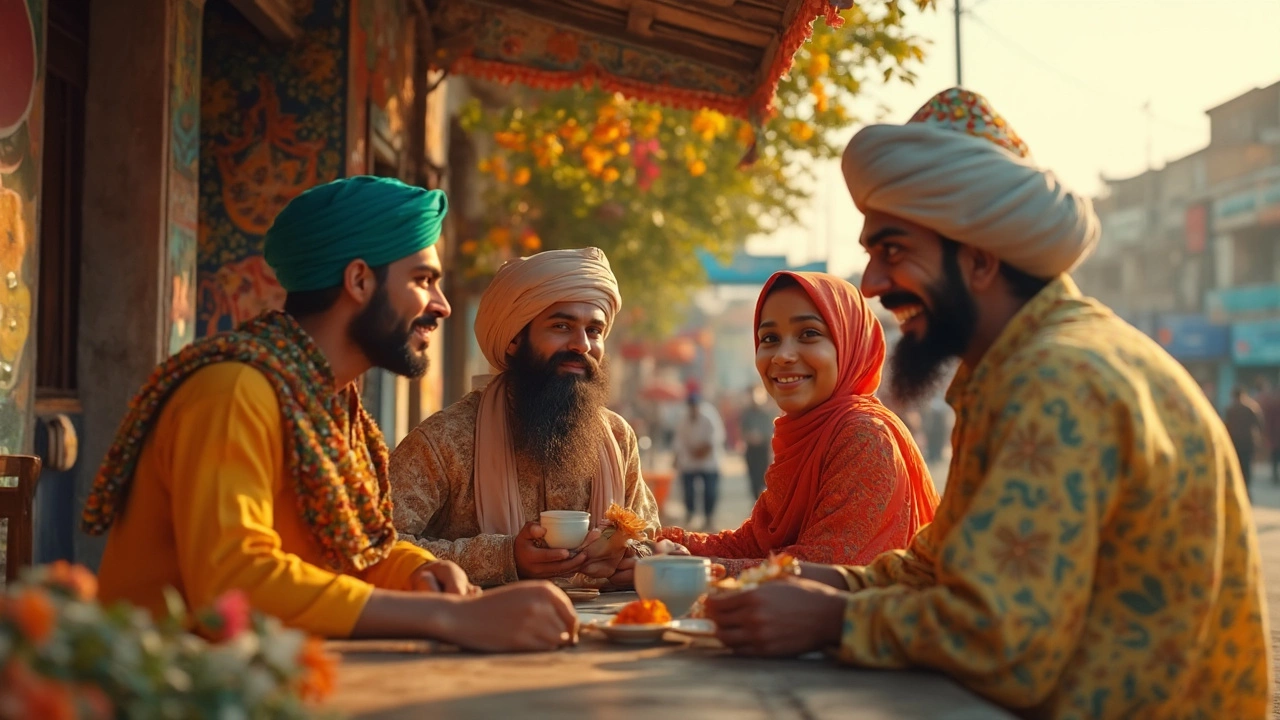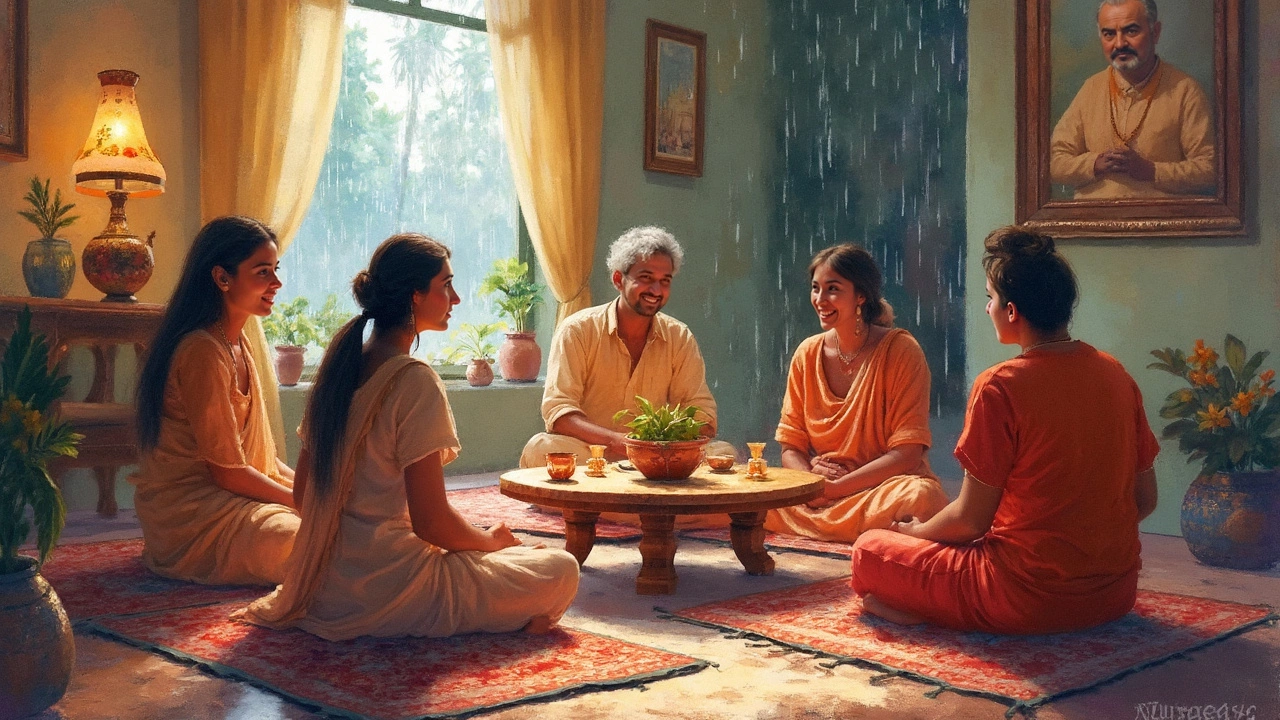Why is India Socially Significant? Friendship Quotes and Connections Explained

India stands out for the way people value friendship—it’s not an exaggeration. Relationships here run deep, often feeling more like family than just friends. Ever wondered why so many Indian movies focus on friendship? It’s part of the culture. People grow up hearing sayings like “a friend in need is a friend indeed,” but with a local twist and real world meaning.
Friendship in India isn’t just about hanging out. It’s about being there when things get rough, lending a hand without being asked, and sharing food as much as jokes. You’ll see this in every corner, from busy cities to small villages. People pick up the phone, visit without warning, and remember birthdays without a Facebook reminder. Want the secret to making lasting friends in India? Show up, listen, and share your time. It’s that simple—no need for fancy gestures.
- Why Indian Friendships Are Unique
- Famous Indian Quotes About Friendship
- How Social Ties Shape Daily Life
- Modern Friendship in India: Digital and Real
- Tips for Building Strong Bonds – Indian Style
Why Indian Friendships Are Unique
What makes friendship in India stand out? It’s the way people blend family and friends together. In fact, in India, your closest friends might call your mom “aunty” and drop in for meals without a second thought. Strong bonds often start in childhood and stretch into adulthood. Big life moments—weddings, festivals, housewarmings—are usually huge gatherings, and friends are always on the guest list, sometimes even before cousins.
There’s a reason the phrase ‘yaar’ (which means buddy or close friend) shows up constantly in Bollywood films and daily talk. The trust runs so deep that friends often become partners in business, caretakers during illness, and travel buddies for life. This social network isn’t just for fun. Sometimes, your friend is the bridge to landing a job or finding a marriage partner.
Here's a quick look at how India’s friendship culture compares:
| Aspect | India | Western Countries |
|---|---|---|
| Daily Interaction | Frequent calls or visits, even without reason | More scheduled get-togethers |
| Family Involvement | Friends involved in family events, vice versa | Family and friend circles usually separate |
| Support System | Friends help with career, money, marriage | Support but mostly emotional |
Notice the difference? Social life here is so connected that “making time” isn’t an excuse—people find ways to maintain strong ties. And it’s not just about fun; these friendships are a real support system during both good times and tough ones.
India is a place where friendship means sharing not just secrets and laughs, but responsibilities—and that’s a big reason it feels different. If you’re looking to understand what makes Indian friendships special, pay attention to the little things people do. That’s where the real connections are built.
Famous Indian Quotes About Friendship
India takes friendship seriously—so it’s no surprise that some classic lines about friends go beyond just sounding good and actually mean something in everyday life. These quotes pop up in conversation, movies, and even school textbooks. People use them to express gratitude, trust, loyalty, and the simple joys of having someone’s back.
“Dosti ka ek usool hai madam – no sorry, no thank you.”
This line from the blockbuster movie Maine Pyar Kiya (1989) still gets quoted by millions. It basically means, in true friendship, you don’t need to say sorry or thank you—you just know you’re there for each other. It sums up friendship values for a whole generation.
There’s another saying, rooted in Hindi: "Sacha dost wahi jo mushkil mein saath nibhaye." (A true friend is one who stands by you in tough times.) You’ll hear this everywhere from family homes to cricket grounds. The message? Friends stick around when life gets tough, not just when it’s easy.
In India, friendship is celebrated every year on the first Sunday of August, known as Friendship Day. People exchange bands, messages, and even small gifts, and quotes like these get written on everything from greeting cards to Instagram posts.
| Popular Friendship Quote | Meaning |
|---|---|
| "Dosti mein no sorry, no thank you" | True friends don’t count favors |
| "Sacha dost mushkil waqt mein pehchana jata hai" | Real friends show up in tough times |
| "Ek dost hi hota hai jo bina baat ke bhi samajh jata hai" | A friend understands without you having to say a word |
Don’t overlook the latest trends either. Social media in India is filled with short, sharp friendship quotes, mostly in Hindi or a mix of Hindi and English—what locals call "Hinglish." These get used in WhatsApp status updates, memes, and group chats. If you want to connect with someone in India, dropping a famous friendship quote never fails to get a smile.

How Social Ties Shape Daily Life
Social ties in India aren’t just background noise—they’re right at the center of how people live, work, and even relax. From childhood, folks are taught that who you know really matters. Getting your first job or renting a house? Knowing someone helps. It’s common for college grads to reach out to their circle—relatives, neighbors, even their old school teachers—for recommendations or leads.
It’s not just about big moments, either. Daily routines like eating meals or celebrating festivals usually happen in a group setting. Instead of eating alone, families sit together, and friends often drop by unannounced for a quick chai and chat. These casual meetups make small problems easier to solve, and even tough days a bit lighter.
Neighborhoods act like mini-communities. Need a quick favor? Ask your neighbor, and chances are, someone’s ready to help. And when there’s a wedding, everyone from childhood friends to distant cousins gets an invite. The idea is to keep social networks strong and always growing.
Here’s a quick look at how these ties pop up in everyday life:
- India's weddings bring together huge groups—an average Indian wedding might see anywhere from 300 to 800 guests, all linked by social ties.
- According to a 2023 Pew survey, over 70% of Indian adults regularly seek advice from friends or family about big decisions.
- Festivals like Diwali and Holi are rarely solo affairs—they turn into street-wide (sometimes city-wide) celebrations because of close social networks.
Check out this data on community participation in Indian cities:
| Activity | % of Urban Indians Participating (2023) |
|---|---|
| Attending local festivals | 85% |
| Helping with neighborhood events | 60% |
| Relying on friends for daily favors | 74% |
That reliance on social ties shapes everything from how people deal with problems to how they find joy in regular routines. It’s a pattern that keeps cities buzzing and villages close-knit. Miss a day at your workplace, and your colleagues will probably call to check in—not just out of concern, but because they genuinely want to stay connected.
Modern Friendship in India: Digital and Real
Friendships in India today blend screen time and face-to-face time. Teens and even older folks use WhatsApp, Instagram, and Facebook not just to post, but to actually stay close. More than 500 million Indians use WhatsApp, and it’s the go-to for quick chats, jokes, memes, group plans, and sharing life updates. Instagram reels aren’t just for influencers—friends make silly videos together or tag each other in relatable posts, building real-life connections from online laughs.
But tech doesn’t replace traditional ways. People still value meeting up, eating together, and celebrating festivals as a group. A 2023 Statista survey showed that nearly 74% of young adults in cities prefer catching up with friends in person at least once a week, even as messages buzz all day. Here’s a look at how digital and real friendships mix:
- Group chats for daily support, event planning, and sharing memes (everyone loves a good laugh after work).
- Video calls make distance less of a problem—families and friends in different cities or countries can still share real moments.
- Festivals like Diwali and Holi are just as likely to end up on social media as they are to fill someone’s house with guests.
- Apps like Bumble BFF and Meetup are making it easier for young Indians in big cities to find new friends with similar interests.
All this tech doesn’t totally change trust, loyalty, or the value of being there in person. Most people still think that showing up matters more than just sending quick texts. That’s especially true for important talks, supporting someone during family issues, or celebrating life’s big moments.
Here’s some quick data showing just how much digital life is part of India’s friendships:
| Platform | Active Users in India (Millions) | Main Use for Friendship |
|---|---|---|
| 500+ | Group chats, daily sharing | |
| 350 | Photos, reels, tagging friends | |
| 330 | Events, groups, long updates | |
| Bumble BFF | 5+ | Finding new friends, events |
If you’re looking to build friendships in India, use tech to get started but don’t skip the meetups, shared meals, and festival invites. That’s where those online connections turn into something that lasts.

Tips for Building Strong Bonds – Indian Style
If you want to make real friends in India, don’t expect things to happen by sending a message or liking a post. Here’s what works on the ground, because people in India take friendship seriously—sometimes, it’s treated like family.
- Show Up Without Waiting for an Invite. In India, it’s totally normal to just drop by a friend’s house, even without planning. Actually being there for someone matters way more than fancy gifts. If a friend’s family invites you for dinner or a festival, say yes. Hospitality is huge here and sharing meals is a big step in building trust.
- Celebrate Everything. Festivals like Diwali, Holi, Eid, and even birthdays are celebrated big time. Join in. Bring a sweet or help with the celebrations. Even a small gesture, like sending wishes during an exam or a job interview, is remembered.
- Share Your Food. You’ll notice Indians love to share food—not just at home, but at school, offices, and even while traveling. Offering a snack, a homemade dish, or just splitting your lunch builds an instant connection.
- Stick Around in Tough Times. Loyalty is prized. Being with a friend when things get rough—like when they lose a job or have family trouble—means a lot. You don’t always need the right words, just being there matters.
- Learn the Lingo. Pick up common phrases or greetings in their language. Even saying “Yaar” (buddy) or throwing a quick “Namaste” goes a long way. Show you care by making a small effort to connect in their own style.
Remember, in India, *social significance* of friendships lies not in words, but in actions. If you want to be someone’s real friend here, invest time, not just texts. That’s why these tips work—they’re lived daily by people across the country.